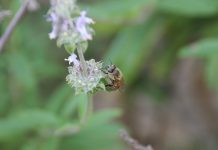
Black-capped chickadees, small birds known for their remarkable memory, have given scientists at Columbia’s Zuckerman Institute new insights into how the brain stores memories.
These birds can remember the locations of thousands of food caches, helping them survive harsh winters.
Researchers discovered that chickadees memorize each food location with brain cell activity that resembles a barcode, a finding that could illuminate how humans and other animals create and recall memories.
The study, published in the journal Cell, suggests this barcode-like memory system might be a common feature in the animal kingdom, including in humans.
Dmitriy Aronov, Ph.D., and his team at Columbia University have been studying these “memory geniuses” to understand the neural mechanisms behind their impressive episodic memory.
Unlike many birds, chickadees do not migrate for the winter, relying instead on their ability to recall the locations of food stashes.
Using indoor arenas that mimic the chickadees’ natural environment, the researchers recorded the birds’ brain activity as they hid and retrieved seeds.
They found that each time a chickadee cached a seed, neurons in the hippocampus fired in a unique pattern, which reactivated when the bird returned to that specific cache. These neural patterns, or barcodes, are brief and easily missed without precise timing and context.
This discovery challenges previous assumptions about episodic memory being solely linked to place cells in the hippocampus, which are known to encode locations.
The research indicates that these barcodes are additional patterns of activity that represent specific events, distinct from the general memory of a location.
The findings open new avenues for understanding memory in humans and other animals, suggesting that episodic memories—those of specific events that contribute to our sense of self—might be encoded in similar barcode-like neural patterns.
The researchers plan to explore whether chickadees use these barcodes to plan retrievals from remote locations, which would further parallel human memory processes.
This breakthrough study not only sheds light on the intricate workings of animal memories but also offers a fascinating glimpse into the potential universality of memory encoding across species, bringing us closer to understanding the very essence of how we remember our past.
The research findings can be found in Cell.
Copyright © 2024 Knowridge Science Report. All rights reserved.



